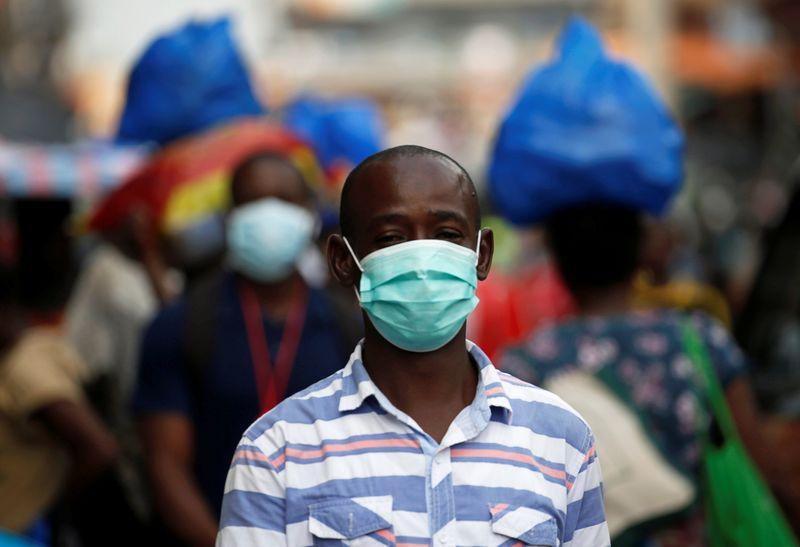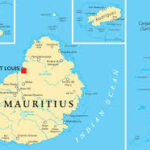Laura López González
The world has used a lack of data to tell itself that Africa has emerged from the COVID‑19 pandemic relatively unscathed. It is a dangerous and deeply rooted fiction — and a tacit justification for one of this century’s darkest moments.
Last week, analytics company Airfinity revealed that the five regions that had secured the bulk of COVID‑19 vaccine doses by September 2020 — the EU, US, UK, Japan and Canada — will now have more than one-billion spare vaccine doses in the coming year.
- SERAP asks Lawan, Gbajabiamila to reject Buhari’s fresh $4bn, €710m loan
- PODCAST: ‘Generators Are Harmful’, Can Nigerians Abandon Them?
Soon, though, the supply of vaccines in the global south will no longer be the problem, Pfizer chief executive Albert Bourla told journalists last week. Instead, the difficulty will be the willingness of people in poor countries to take them.
“Next year, we should be having enough doses for all that want to receive,” Bourla said. “Then we will reach the same problems [in low- and middle-income nations] that we are reaching in the high-income countries, with people that are refusing to get the vaccination.”
He added: “As far as I know, [vaccine hesitancy] will be even higher. The percentage of hesitancy in those countries will be way, way higher than the percentage of hesitancy in Europe or in the US or in Japan.”
However, there are few, if any, studies to support Bourla’s assertion that the global south would be more vaccine-hesitant than the north.
Research on vaccine hesitancy in low-income countries is in its infancy, noted an August study in Nature. In fact, the study found about 80 per cent of people in the 10 largely African low- and middle-income countries it reviewed wanted a COVID-19 vaccine — a proportion much higher than that recorded in the US (65 per cent) or Russia (28 per cent).
Africa, the argument goes, has not been as hard hit by COVID‑19 as the north. After all, a recent Time magazine headline read, “Why Africa’s COVID‑19 outbreak hasn’t been as bad as everyone feared.”
Without having experienced (allegedly) the kind of devastation that the north has, they wonder, will Africans appreciate the urgency to get vaccinated when their turn finally comes?
The Brookings Institution noted in May that although developing countries accounted for about half of all official COVID‑19 fatalities, nearly nine in 10 COVID-19 deaths could be in the global south.
In Africa, there’s absolutely no data to say the continent has been spared. In fact, Professor Tom Moultrie, a demographer from the University of Cape Town, thinks the notion should be retired altogether.
“The reason we think there’s no Covid in much of Africa is simply because we don’t know where to find those deaths … that doesn’t at all mean to say that they are not happening,” he told The Continent.
A myth to ease a guilty conscience
Moultrie tracks uncounted COVID‑19 deaths in South Africa. “I buy the argument that we have a younger population, but that is not enough. Without hard evidence built off reliable data from health and vital registration systems and reasonably large sample sizes of testing and mortality tracking, we simply cannot say that Africa has been spared.”
We also may never know COVID‑19’s true body count in Africa for two reasons: A lack of testing and a dearth of records.
Countries use civil registration systems to record births and deaths. But more than half the countries on the continent don’t even have enough information on reported deaths to measure how well deaths are being recorded in general, COVID‑19 aside.
“Most of the developing world cannot do the accounting for who is dying and to what extent people are dying at anything approximating a complete way,” Moultrie said.
Still, the fairy tale that the continent’s outbreak was “not as bad” risks allowing pharmaceutical companies and heads of state to justify the inequitable COVID‑19 vaccine distribution that has seen just 2 per cent of doses globally administered in Africa. It paves the way for a revisionist history that says vaccines went first to those who needed them most. It makes a mockery of the dead that will never even be counted among the victims of this inequity.
The fiction of an Africa spared also underpins, in Bourla’s comments, a historical narrative in which some know better about other people’s bodily autonomy and choices. These “other people” are often at the margins, whether by virtue of their race, gender, geography, poverty, incarceration or by the sheer inconvenience their existence poses to power.
We’ve been here before. In the early 2000s, HIV treatment wasn’t available in South Africa but drugs to prevent mother-to-child transmission were — if healthcare workers could diagnose women in time to provide it. Many said black women would never agree to be tested for a disease that was a death sentence, but more than nine times out of 10, pregnant, HIV-positive women volunteered to be tested. They understood the science.
They understood the stakes, and they made a choice.
Culled from the Mail&Guardian

 Join Daily Trust WhatsApp Community For Quick Access To News and Happenings Around You.
Join Daily Trust WhatsApp Community For Quick Access To News and Happenings Around You.


